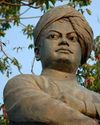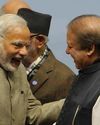India is perhaps the only country in the world where Jews have not faced discrimination or persecution at the hands of the majority community.

COMPARED TO THEIR brothers in faith in Europe, the Middle East, and the United States, very little is known about the Jewish community in India. Three immediate reasons come to mind for this: the first is the minuscule size of the group, which peaked at approximately 30,000 around the time of Indian independence. A second reason for the relative nondescript status of the Jews of the subcontinent might be that they have left behind fewer records than their co-religionists around the world. This may partly be because India did not discriminate against its Jews to warrant separate laws or other instruments which may have left behind a paper trail. The third reason could be that the Jews of India have not had any spectacular achievers as were seen in Europe—Baruch Spinoza, Moses Mendelssohn, Niels Bohr, Gustav Mahler, Sigmund Freud, and the like.
It is not clear when the first permanent Jewish settlement in India was established. There is evidence that Jewish merchants have come to the subcontinent for trade in teak, ivory, spices, peacock, ginger, and other items for at least 3,000 years. However, the first Jews to immigrate to India are thought to be the Bene Israel who were shipwrecked off the Konkan coast around 175 BCE. Others say that the first wave of Jewish immigrants was even earlier, in the eighth century BCE. This is supported by Biblical references to connections with India.
This story is from the June 2017 edition of Swarajya Mag.
Start your 7-day Magzter GOLD free trial to access thousands of curated premium stories, and 9,000+ magazines and newspapers.
Already a subscriber ? Sign In
This story is from the June 2017 edition of Swarajya Mag.
Start your 7-day Magzter GOLD free trial to access thousands of curated premium stories, and 9,000+ magazines and newspapers.
Already a subscriber? Sign In

Refuging Progess
There is a well-orchestrated global conspiracy to deny scientific and technological developments from the West to Third World countries.

The Monk Of Science
Vivekananda believed that Religion should be subjected to scientific methods of investigation. The third and concluding part of our series on the Swami and his views on science.
The Next Step
Indian technical manpower can be trained for high-value-added emerging services in the era of mass commoditisation of hardware.
The Threat Of Autarchy
The force of globalisation is an irreversible reality, and it is countries like India and China that will nurture it going forward.

Neanderthals: The Womb Of Caves
Recent discoveries indicate that Neanderthals may have had a rich inner life, including symbolic thought. Indeed, they may have been the progenitors of human religions.

Getting India's World Right
Incremental concessions will get India nowhere with Pakistan and China. What we need is a classically conservative foreign policy, based on realism.

The Hesitant Orbit
In order to march boldly ahead into the deep space, New Delhi must work towards building a station, boost its techno-economic planning and use the Indian Space Research Organisation smartly.

Nudges And Narratives
The debate surrounding Sanjay Leela Bhansali’s Padmavati brings India a complex network of portraits within a cultural world-system.

The Spell Of Specialisation
THE INDIAN ADMINISTRATIVE SERVICE NEEDS AN URGENT REJIG. THE KEY TO SPEED AND EFFICIENCY LIES IN PUTTING AN END TO A GENERALIST APPROACH AND IN GOING FOR A NEW SERVICE.
The Great Gamble
With demonetisation, the prime minister has taken a huge risk— both economic and political. He must succeed, because this move could transform both our economy and our society.